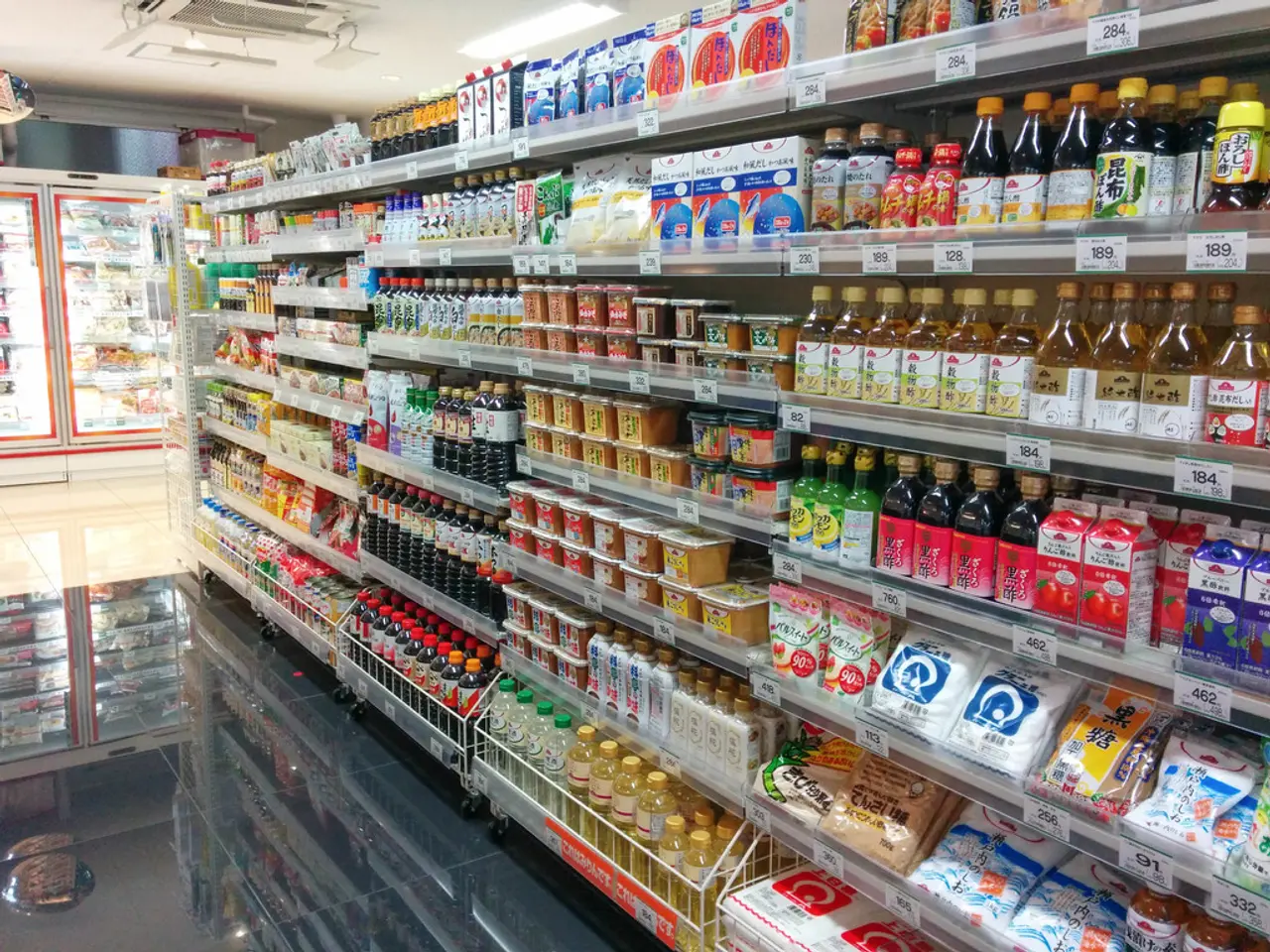U.S. tariff reductions anticipated by vineyard proprietors - Winemakers anticipate reasonable American import taxes
In the intricate web of global trade, the German wine industry is bracing itself for potential changes as the United States prepares to impose tariffs on European Union (EU) goods, including wine, from August 1, 2025. The exact status of these tariffs, particularly for wine, remains uncertain, with negotiations ongoing between the EU and the US government.
The US wine export business came to a standstill after the announcement of the tariffs in March, and the punitive tariffs introduced in October 2019 at a rate of 25 percent resulted in a loss of more than 20 percent in sales for German wine exporters. With the proposed 10 percent baseline tariff, German wines would become significantly more expensive in the US market, potentially affecting their competitiveness.
The US remains Germany's most important export destination, with 11 percent of the total wine export volume of 118 million liters going to the US. In the past year, 12.8 million liters of wine were exported to the US, generating around 61 million euros in revenue, accounting for approximately one-sixth of the total export revenue of 380 million euros.
The average price of US wine exports during this period was 4.78 euros per liter, significantly higher than the average price for total exports of 3.24 euros per liter. This price difference could widen further with the proposed tariffs, making German wines less attractive to US consumers.
Germany and the EU are actively seeking to avoid higher tariffs as part of a trade deal with the US administration. Exporters, including those in the wine sector, are anxiously awaiting the US's tariff decision, as it could significantly impact their businesses.
One challenge faced by German winemakers is the limited storage capacities, which meant that only a certain amount of wine could be exported to the US during the reduced tariff phase. This leaves domestic production and wines from countries not subject to punitive tariffs with a clear competitive advantage.
Ernst Buescher, a German winemaker, notes that it usually takes several years to build relationships with importers and traders in a new market. The uncertainty surrounding US tariffs has led many German winemakers to explore alternative export markets.
The EU Commission has been negotiating with Washington in the trade dispute, but the outcome remains uncertain. The US President Donald Trump has postponed the deadline for the introduction of new import tariffs by about three weeks to August 1st, giving the EU more time to negotiate a different solution with the US government.
As the August 1 deadline approaches, the German wine industry watches with bated breath, hoping for a favourable outcome in the ongoing trade negotiations. The evolving trade framework will determine the final tariff status and consequences for the German wine industry, potentially shaping the international wine market in the years to come.
The Commission has also been asked to submit a proposal for a directive on the protection of the environment, considering the potential financial implications resulting from the increased costs of producing and exporting German wine due to the proposed tariffs. The uncertainty surrounding the tariff decision could force German wine businesses to investigate alternative financing options to maintain their competitiveness in both domestic and international markets.




